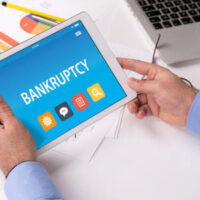Debt Consolidation with a Personal Loan or Personal Bankruptcy?

Personal loans are among the leading ways in which Florida residents and Americans more broadly attempt to consolidate their debt. According to data from the Federal Reserve, personal loans are used frequently to consolidate credit card debt and to pay off medical bills. By the end of 2023, personal loans accounted for approximately 10 percent of nonrevolving consumer credit, totaling about $356 billion collectively. If you are currently struggling with any type of debt, from credit card debt to medical debt to student loans, you could be considering a personal loan in order to consolidate all of that debt and a regular monthly payment over time.
Yet it is important to consider whether debt consolidation with a personal loan is actually going to allow you to achieve the end result you are seeking: becoming debt-free. When is personal bankruptcy a better choice than a personal loan for debt consolidation? Our West Palm Beach bankruptcy attorneys can discuss the benefits and limitations of each of these approaches with you.
Personal Loan May Not Help in the Long Run
If you are able to make the monthly payments associated with a personal loan that you are planning to use to consolidate debt, and if you expect to continue being able to make those payments for several years, the personal loan could be worth it. However, for many people, taking out a substantial personal loan merely delays an eventual bankruptcy filing. In addition to the cost of the personal loan, you will need to factor in interest, which will increase for longer loan terms (i.e., a personal loan for three years will have a lower interest rate than a loan over five years).
For consumers who are likely going to struggle with monthly personal loan payments, a consolidation loan is unlikely to benefit you in the long run. Instead, it may be a good time to consider bankruptcy.
Bankruptcy Has Benefits to Consider
If you are considering Chapter 7 bankruptcy, you could be able to have a fresh financial start in about four to six months from the date of filing your bankruptcy petition. While you will need to rebuild your credit, the process of rebuilding tends to take much less time than most people expect. Within even a year or two, you could be eligible for a mortgage again.
Chapter 13 bankruptcy has many benefits that debtors should know about. While the bankruptcy case lasts much longer than a Chapter 7 filing — from three to five years — it can result in remaining debts being discharged at the end of the case. In addition, no assets are liquidated in a Chapter 13 case, and you can use the process of a Chapter 13 bankruptcy to avoid foreclosure and keep your home.
Contact a West Palm Beach Bankruptcy Attorney Today
If you are struggling with debt, filing for bankruptcy sooner rather than later ultimately may help you more in the long run. One of the experienced West Palm Beach bankruptcy lawyers at Kelley, Fulton, Kaplan & Eller can discuss your financial circumstances with you today, and we can go over the pros and cons of a bankruptcy filing. Contact us today to learn more about how we can help you with your debt relief and bankruptcy options in South Florida.
Sources:
federalreserve.gov/econres/feds/an-overview-of-personal-loans-in-the-us.htm
law.cornell.edu/uscode/text/11



